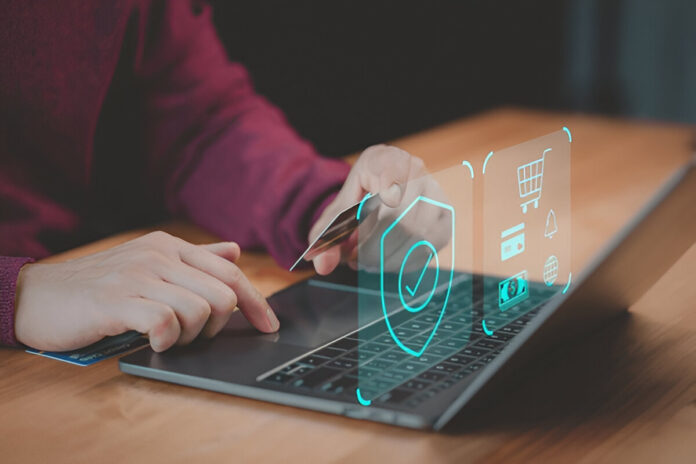These days, many Ugandans are turning to online shopping. It’s easy to browse products while sitting at home, and you can have items delivered right to your door. But this convenience comes with risks. My cousin recently lost 300,000 UGX after paying for a smartphone that never arrived. The good news is that with some simple steps, you can protect yourself and enjoy shopping online without worries.
Essential Tips for safe online shopping in Uganda
hopping online from your phone or computer can save you time and stress of moving around Kampala’s busy streets. But be careful! Many Ugandans have cried after losing money to clever online thieves. My own sister lost 450,000 UGX last year when she tried to buy a phone from someone on Facebook. The person looked genuine but disappeared after receiving mobile money! Whether you want to buy clothes, electronics, or food, these five tips will help keep your money safe. I’ve learned these lessons the hard way, so you don’t have to suffer like me and many others.
1. Don’t pay before delivery.
Scammers love to advertise nice things at cheap prices, especially on Facebook, WhatsApp, and Instagram. They show beautiful photos of phones, shoes, or electronics and claim they’re selling them cheaply. When you message them, they might say:
“Please send 20,000 UGX deposit to reserve your item” “We need 15,000 UGX for transport to your location”
Once you send money, they will block your number and disappear! I remember my friend Sarah who saw a beautiful dress advertised on Instagram. The seller asked for “just 10,000 UGX delivery fee” but after Sarah sent the money, the seller blocked her.
Many of these scammers pretend to work for big companies like Jumia or Kikuubo Online. Always choose to pay when the item arrives, so you can check it first.
2. Don’t use your bank debit/credit card.
Your bank card connects directly to all your savings. If hackers get your card details while you’re shopping online, they could take everything you’ve worked hard to save.
Instead, use special cards made just for online shopping, like the Airtel Global Pay Card. With these cards:
- You put only the money you need for that purchase
- It’s separate from your main Mobile Money wallet
- If someone steals the details, they can only take the small amount you loaded
For example, if you want to buy a shirt worth 50,000 UGX, you load exactly 50,000 UGX on your virtual card. Even if someone steals your card information, they can only take 50,000 UGX, not your entire savings.
3. Don’t buy from unfamiliar websites.
Be careful about which websites you shop from. Scammers create fake websites that look almost exactly like popular ones. They change just a small part of the website address to trick you.
For example, the real Condala website is www.condala.com, but a fake one might be www.condala.tk or www.c0ndala.com (with a zero instead of the letter O).
Last year, my workmate James found “Jumia” selling phones at half price. He didn’t notice the website was actually “jummia.net” (with double ‘m’). He paid 400,000 UGX and never received anything.
Always check the website address carefully before entering any information or making payments.
4. Be security cautious.
Before buying anything online, check if the website is secure:
- Look for “https://” at the beginning of the website address (not just “http://”)
- Find the small padlock icon next to the website address in your browser
These signs show that your information will be scrambled so hackers can’t read it easily. For example, when you shop on secure sites like Jumia or Kikuubo Online, you’ll see both the “https://” and the padlock.
Also, use strong passwords with a mix of letters, numbers and symbols. “Kampala123” is easy to guess, but “K@mp@la-2023!” is much stronger.
When using free WiFi at places like Café Javas or Acacia Mall, turn on a VPN app before shopping to add extra protection.
5. Don’t go for “too good to be true” offers.
If someone is selling a brand new iPhone for 500,000 UGX when it normally costs 3,000,000 UGX, be very suspicious! Real businesses need to make profit to survive.
My neighbor David once found a website selling brand new laptops for just 300,000 UGX. He quickly paid but received an old, broken computer that didn’t even turn on.
Genuine shops do offer discounts, especially during Christmas or special days like Black Friday. But if prices seem unbelievably low, it’s probably a trap.
Conclusion
Online shopping brings convenience to our lives, but we need to be careful. By following these five simple tips—not paying before delivery, using virtual cards, sticking to known websites, checking for security features, and avoiding unrealistic offers—you can protect yourself from online scammers.
Start with small purchases as you learn, and share these tips with your family and friends. When we all shop safely, scammers will have nowhere to hide. Happy and safe shopping to all Ugandans!



Excellent guide on safe online shopping! The tips are practical and easy to follow. A must-read for anyone looking to shop securely online.